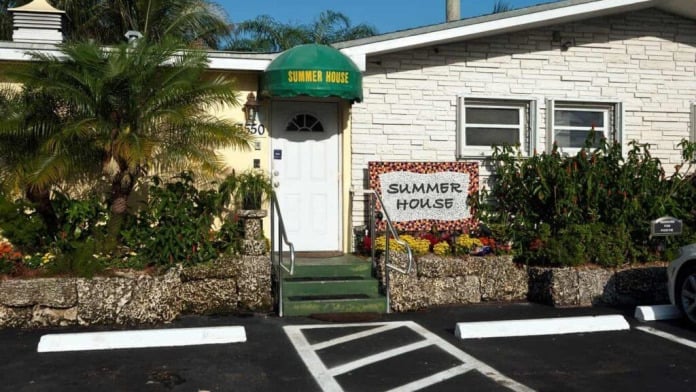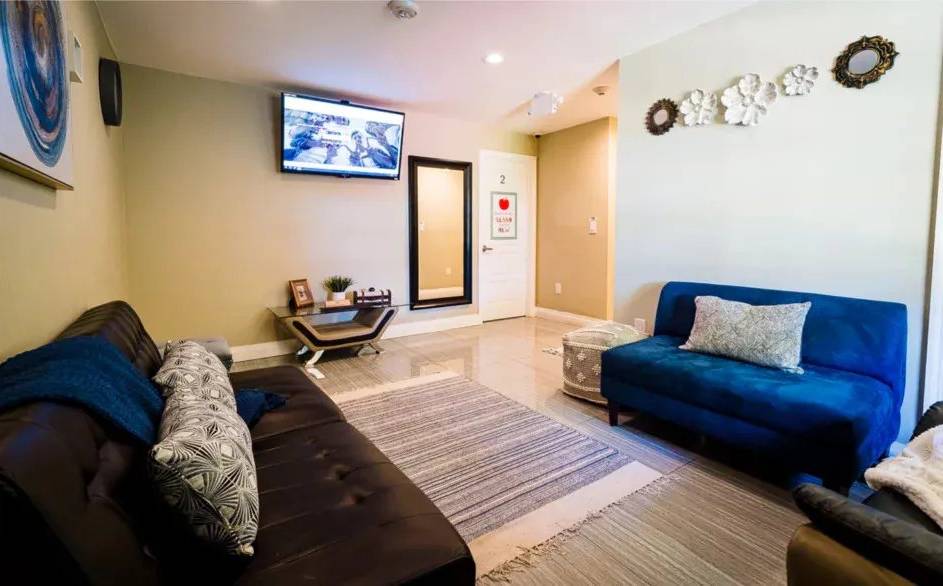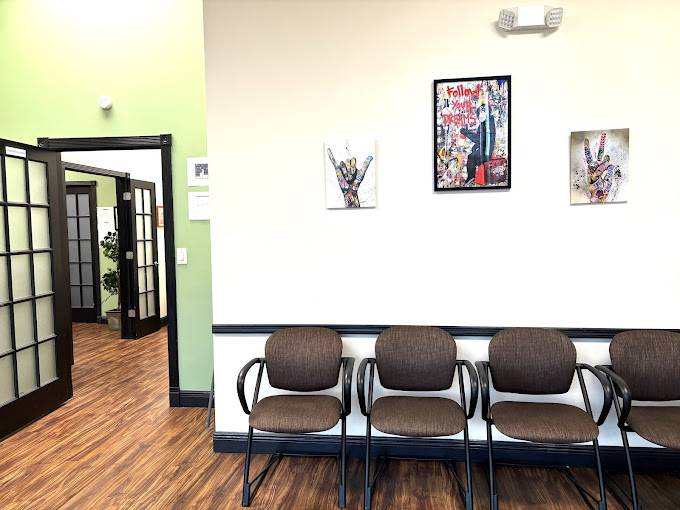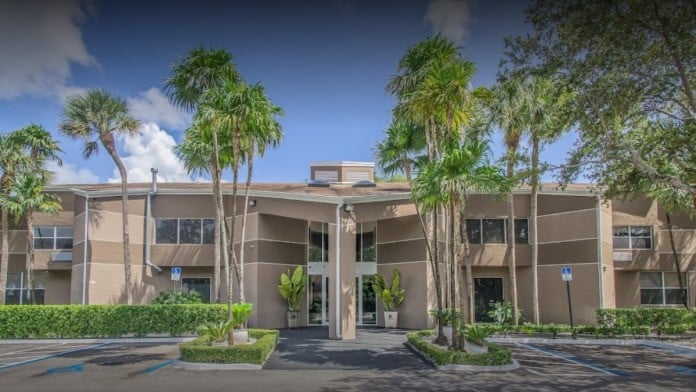About Dade Family Counseling CMHC
Dade Family Counseling Community Mental Health Center offers outpatient mental health care and addiction treatment services for individuals of all ages. Their offices are located in Miami, Florida surrounded by palm trees and close to shopping and restaurants.
Being accredited by the Joint Commission means they meet top standards for quality and care. You can trust that they’re committed to providing effective treatment.
Your Path to Recovery Starts Here
A friendly staff member will get back to you within 24 hours to set up your first appointment. During that first meeting you’ll sit down with a caring mental health professional who’ll help you map out your treatment plan. They offer several treatment options including telehealth.
Support and Healing in Group Therapy
Substance Abuse Group Therapy is built around evidence based treatment methods. One method they might use is cognitive behavioral therapy (CBT) which helps you change negative thoughts and habits that could lead to relapse.
The techniques they use here aren’t just random. They’re proven strategies that focus on the whole person and not just the addiction. That means your therapists look at your emotional, psychological and physical health to help you heal in all those areas.
What’s great is that you’re not alone in recovery. You’ll be part of a group where everyone is there to hold each other accountable and offer support.
Psychosocial Rehabilitation for Comprehensive Support
Sometimes people experience addiction and mental health issues at the same time. Professionals call it dual diagnosis. The Psychosocial Rehabilitation (PSR) program helps when you’ve been hospitalized or unable to work due to mental health.
The focus is on helping you rejoin the community and work on life skills and job readiness. Therapy and crisis management are there to support you through tough times.
PSR is available for adults and adolescents. Payment is through Medicaid. When you have your first appointment you’ll talk about payment options and verify if you qualify for this program.
Several clients have mentioned that their therapists at Dade Family Counseling helped them with resources that made a difference. The supportive environment is something to value when deciding on treatment options.
Latest Reviews
Rehab Score
Gallery
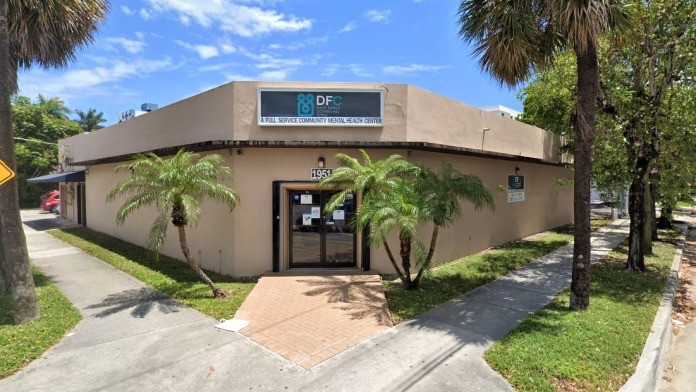

Other Forms of Payment
Medicaid is a state based program that helps lower-income individuals and families pay for healthcare. Medicaid covers addiction treatment so those enrolled can use their coverage to pay for rehab. When a program accepts Medicaid the client often pays very little or nothing out of their own pocket.
Medicare is a federal program that provides health insurance for those 65 and older. It also serves people under 65 with chronic and disabling health challenges. To use Medicare for addiction treatment you need to find a program that accepts Medicare and is in network with your plan. Out of pocket costs and preauthorization requirements vary, so always check with your provider.
Self-pay involves paying for treatment out of your own pocket. You can use savings or credit, get a personal loan, or receive help from family and friends to fund your treatment. If you don't have insurance or your insurance plan doesn't cover a specific program, self-pay can help ensure you still get the care you need.
Private insurance refers to any kind of healthcare coverage that isn't from the state or federal government. This includes individual and family plans offered by an employer or purchased from the Insurance Marketplace. Every plan will have different requirements and out of pocket costs so be sure to get the full details before you start treatment.
Addiction Treatments
Levels of Care
Intensive Outpatient Programs (IOP) are for those who want or need a very structured treatment program but who also wish to live at home and continue with certain responsibilities (such as work or school). IOP substance abuse treatment programs vary in duration and intensity, and certain outpatient rehab centers will offer individualized treatment programs.
Treatments
The goal of treatment for alcoholism is abstinence. Those with poor social support, poor motivation, or psychiatric disorders tend to relapse within a few years of treatment. For these people, success is measured by longer periods of abstinence, reduced use of alcohol, better health, and improved social functioning. Recovery and Maintenance are usually based on 12 step programs and AA meetings.
Drug rehab in Florida provides quality treatment to help individuals overcome dependency related to a wide range of addictive substances. Programs address both the physical and mental aspects of addiction in order to help you make a full recovery.
A combined mental health and substance abuse rehab has the staff and resources available to handle individuals with both mental health and substance abuse issues. It can be challenging to determine where a specific symptom stems from (a mental health issue or an issue related to substance abuse), so mental health and substance abuse professionals are helpful in detangling symptoms and keeping treatment on track.
Opioid rehabs specialize in supporting those recovering from opioid addiction. They treat those suffering from addiction to illegal opioids like heroin, as well as prescription drugs like oxycodone. These centers typically combine both physical as well as mental and emotional support to help stop addiction. Physical support often includes medical detox and subsequent medical support (including medication), and mental support includes in-depth therapy to address the underlying causes of addiction.
Programs
Adult rehab programs include therapies tailored to each client's specific needs, goals, and recovery progress. They are tailored to the specific challenges adult clients may face, including family and work pressures and commitments. From inpatient and residential treatment to various levels of outpatient services, there are many options available. Some facilities also help adults work through co-occurring conditions, like anxiety, that can accompany addiction.
Young adulthood can be an exciting, yet difficult, time of transition. Individuals in their late teens to mid-20s face unique stressors related to school, jobs, families, and social circles, which can lead to a rise in substance use. Rehab centers with dedicated young adult programs will include activities and amenities that cater to this age group, with an emphasis on specialized counseling, peer socialization, and ongoing aftercare.
Clinical Services
Whether a marriage or other committed relationship, an intimate partnership is one of the most important aspects of a person's life. Drug and alcohol addiction affects both members of a couple in deep and meaningful ways, as does rehab and recovery. Couples therapy and other couples-focused treatment programs are significant parts of exploring triggers of addiction, as well as learning how to build healthy patterns to support ongoing sobriety.
Research clearly demonstrates that recovery is far more successful and sustainable when loved ones like family members participate in rehab and substance abuse treatment. Genetic factors may be at play when it comes to drug and alcohol addiction, as well as mental health issues. Family dynamics often play a critical role in addiction triggers, and if properly educated, family members can be a strong source of support when it comes to rehabilitation.
Group therapy is any therapeutic work that happens in a group (not one-on-one). There are a number of different group therapy modalities, including support groups, experiential therapy, psycho-education, and more. Group therapy involves treatment as well as processing interaction between group members.
In individual therapy, a patient meets one-on-one with a trained psychologist or counselor. Therapy is a pivotal part of effective substance abuse treatment, as it often covers root causes of addiction, including challenges faced by the patient in their social, family, and work/school life.
Life skills trainings involve all the skills a person must have in order to function successfully in the world. These include time management, career guidance, money management, and effective communication. Truly successful addiction recovery is based on the ability to not only live substance-free, but to thrive. Life skills teaches the practical necessities of functioning in society, which sets clients up for success in life, and therefore sobriety.
Amenities
-
Private Setting
Staff & Accreditations
Staff
Jennifer Cordaro, M.Ed
CEO
Marta Sanchez, MPA
Executive Director
Miriam Suarez, LMHC
Clinical Director
Dr. Roberto Hernando
Chief Medical Director
Dr. Fernando Pino
Child and Adolescent Psychiatrist
Arlene Martinez, HIMT
Director of Medication Management
Karen Ruiz-Franco, BA
Human Resources Coordinator
Accreditations

The Joint Commission, formerly known as JCAHO, is a nonprofit organization that accredits rehab organizations and programs. Founded in 1951, the Joint Commision's mission is to improve the quality of patient care and demonstrating the quality of patient care.
Joint Commission Accreditation: Yes
Contact Information
1951 NW 17th Avenue
Miami, FL 33125


